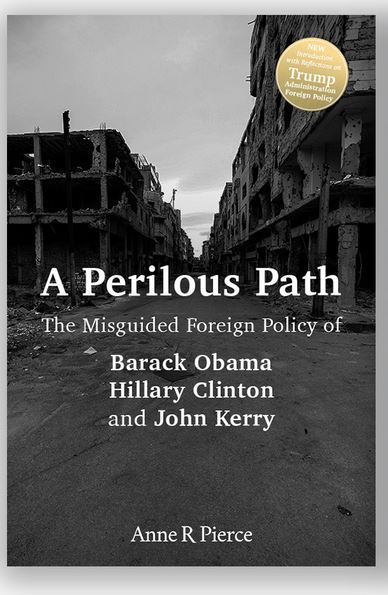North Korea’s nuclear and ballistic missile programs have advanced so far and so fast that they are an existential threat to Japan and South Korea and soon will threaten the continental United States. What better reminder that we shouldn’t wait until the threat is grave to put intense pressure on extremist aggressor regimes. Calling North Korea “our greatest immediate threat,” and initiating an urgent “policy review,” the Trump administration is considering how to do just that.
UN Representative Nikki Haley and others have stressed that “all options are on the table” and that we will not “waver” in our commitment to South Korea and Japan. Secretary of Defense James Mattis has warned, “Any attack on the United States or its allies will be defeated, and any use of nuclear weapons will be met with a response that is effective and overwhelming.” The administration is accelerating missile defense deployment and supporting stronger sanctions. Clearly, it is trying to reassure Asian allies and caution North Korea.
Secretary of State Rex Tillerson’s trip to the region was key to that effort. Citing the “failed approach” of the past, he said that the United States would no longer rely on negotiations. The Trump team is right to conclude that our continuous pursuit of a negotiated solution has played to North Korea’s advantage. The problem with recent proposals from the usual quarters that diplomacy be attempted because penalties have “already” been tried is its upside down logic. It is diplomacy that has been tried, again and again, whereas initiatives to sanction North Korea and its enablers have been inconsistent and inadequate. Vacillation, incrementalism, and naïve faith in “talks” with the fanatical regime have been recurring features of US policy, and were especially evident during the Obama years.
President Obama and Secretaries of State Clinton and Kerry continued to seek diplomatic solutions even after North Korea proved duplicitous, intransigent and intractable. No matter how many bellicose threats and acts, nuclear and missile tests, and violations of previous agreements, they suggested that compromise and material assistance were “still” possible if genuine talks ensued. They promised recognition of the brutal regime’s “legitimacy” if only “progress” were made on the nuclear issue, and even offered “no first use” of nuclear weapons. Yet the very administration that was willing to pay the highest price for negotiations could not get North Korea into “Six Party Talks.” Instead, it got North Korea’s march toward deliverable nuclear weapons, ratcheting up of incendiary rhetoric and increase in already horrific human rights violations.
In 2012, Kim Jong-un did agree to a bilateral “Leap Day” agreement in which the United States pledged 240,000 metric tons of food in exchange for a freeze on (not an end to) nuclear and missile tests. But the agreement fell apart once it became clear that North Korea had no intention of honoring it. The regime prepared more nuclear tests, declared its nuclear weapons were not a “bargaining chip,” threatened the United States and its Asian allies with destruction, and rattled South Korea with cyber-attacks and military provocations. Similarly in 2015, after North Korea signaled that it might agree to diplomacy, it added preconditions, then rejected the possibility of talks themselves.
There was in fact no correlation between engagement efforts and more cooperative behavior. North Korea test-fired Scud and ballistic missiles in early 2014 … just after the North and South held their first high-level talks in more than six years and North and South Korean families had their first reunions in more than three years. The Wall Street Journal reported that “days before” North Korea’s January 2016 nuclear test, the Obama administration secretly agreed to talks to try to formally end the Korean War, dropping a longstanding condition that North Korea first curtail its nuclear arsenal.
The hard truth is that North Korea is unlikely to compromise its nuclear and missile programs. They serve both its defensive concerns and offensive aims. Accordingly, last year, North Korean leaders suggested they might be willing to negotiate in the future on matters other than nuclear weapons and human rights! By then, there was increasing consensus in US policy circles that the pursuit of nuclear negotiations and corollary downplaying of human rights was getting us nowhere, and was unfair to the severely oppressed North Korean people. Congress passed a new law authorizing unambiguous sanctions, but President Obama was unwilling to fully implement them.
Instead of holding onto naïve hope, we must face stark reality. Sanctions must be increased and enforced and North Korea should be re-designated a state sponsor of terror. Resultant financial pressure might increase discontentment of North Korean elites. Thoughtful disincentives to Chinese support for North Korea are obviously important. Our defenses and alliances must be fortified. South Korea should be urged not to delay missile defenses or return to “Sunshine Policies” which were abandoned because its own defense ministry deemed them a “failure.”
The preemptive strike scenario can serve as a warning, but should be avoided unless truly necessary. Radio Free Asia and the Voice of America, the spread of radios and cell phones, and speeches by leaders of the “free world,” should be used to counter the regime’s insidious propaganda. Having waited so long to apply real pressure, we must apply all the pressure we can.
This article was originally published at Washington Examiner on March 28, 2017. Read the full article here.


